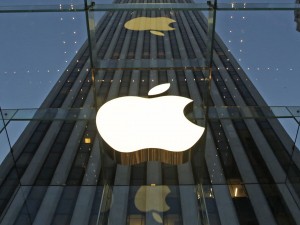 Apple says that its support for strong encryption technology remains as strong as ever. Apple’s Tim Cook is one of the highest-profile supporters of strong encryption in the tech industry. Apple’s popular messaging client iMessage uses end-to-end encryption so the messages cannot be intercepted and read by a third party. These third parties include police and Apple itself. Cook recently told the Irish Independent that the company has no plans to weaken the encryption technology.
Apple says that its support for strong encryption technology remains as strong as ever. Apple’s Tim Cook is one of the highest-profile supporters of strong encryption in the tech industry. Apple’s popular messaging client iMessage uses end-to-end encryption so the messages cannot be intercepted and read by a third party. These third parties include police and Apple itself. Cook recently told the Irish Independent that the company has no plans to weaken the encryption technology.
Following the revelations by NSA whistleblower Edward Snowden of that the US was spying on vast swaths of the population, encryption products have become much more popular. Technologists and privacy activists say that protecting users’ sensitive data is essential, much to the frustration of law enforcement. Some governments have requested “back doors” that can give them access to online services, but encryption advocates say that if governments can do it, criminals will figure out how to do it too.
Earlier in November,the UK’s Conservative government introduced an Investigatory Powers Bill that would place limits on the use of encryption by tech companies. There have been concerns that the wording of the bill could force tech companies to weaken their protections. It is unclear what would happen if Britain does manage to undermine the encryption of technology companies. Encryption technology is widely available from a variety of sources, so it would make sense that people who were really determined would be able to just find another program to use.
A series of deadly attacks in Paris have made the debate over the use of encryption by criminals flare up once again. Reports claimed the terrorists used encryption technology for communications with militant jihadist group Islamic State. Encryption advocates say that the tech is also used by hundreds of millions of people, so any attempted ban would be unlikely to have any effect. Removing encryption tools from prominent services would only hurt law-abiding citizens who rely on the technology to protect their data.
